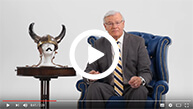Discover how simple home accessibility upgrades can help you stay safe and comfortable through Canada’s winter months. Learn how you can use the value in your home—through the CHIP Reverse Mortgage from HomeEquity Bank—to fund important improvements that support mobility, confidence, and year round independence.
Preparing your home for winter can make a meaningful difference in comfort and energy costs. This guide explores practical ways to fund insulation upgrades, including government rebates and how a CHIP Reverse Mortgage can help you make your home warmer without straining your retirement income.
Prepare your home for the Canadian winter with essential repairs funded through a CHIP Reverse Mortgage. Access tax‑free funds to manage seasonal maintenance and keep your home safe, warm, and ready for colder weather.
Excerpt When looking into loan options, many retirees consider a reverse mortgage. The first question they often ask themselves is, “What is my reverse mortgage eligibility?” The answer is, eligibility depends on a range of considerations, including your age, and the location and condition of your home. Retirees are often surprised at what reverse mortgage eligibility doesn’t involve, such as your income level.
For Canadians aged 55 and over, managing a traditional mortgage in retirement can be increasingly difficult — especially as interest rates rise and fixed terms expire. Many homeowners who secured low rates during the COVID-19 pandemic are now facing significantly higher monthly payments as their five-year fixed mortgages come due. For those looking to stay … Continued
Many Canadian homeowners approaching retirement wonder “Are Reverse Mortgages safe in Canada?” – especially after hearing troubling stories from the US. But why are reverse mortgages safe in Canada? Let’s take a closer look at those US reverse mortgage stories and why they couldn’t happen here. We’ll also look at the laws in place to protect Canadian reverse mortgage customers, and we’ll answer the questions, “are reverse mortgages safe for seniors?” and “is a CHIP reverse mortgage safe?”


















